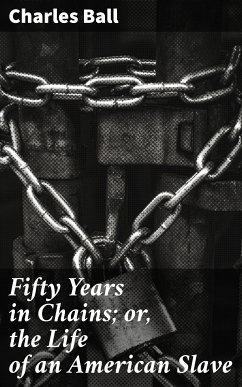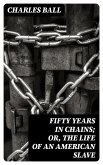In "Fifty Years in Chains; or, the Life of an American Slave," Charles Ball provides a harrowing and vivid account of his own experiences as an enslaved African American. This memoir not only chronicles his personal suffering and resilience but also shines a light on the brutal realities of slavery in the early 19th century. Ball's prose is marked by a poignant clarity, blending straightforward narration with rich emotional detail that engages readers while provoking critical reflections on the societal implications of enslavement. Set against the larger backdrop of antebellum America, this work serves as both a historical document and a heartfelt plea for justice, illustrating the dehumanizing effects of slavery on individuals and families alike. Charles Ball, born into slavery in Maryland, endured immense hardships that molded him into a passionate advocate for abolition. His narrative is rooted in lived experience, granting authenticity to his observations. Ball'Äôs eventual escape and subsequent activism reflect a courageous commitment to confront the social injustices of his time, revealing a moral compass that steered him towards both writing and advocacy for the rights of African Americans. "Fifty Years in Chains" is a must-read for anyone interested in the American narrative of slavery, social justice, and the quest for human dignity. Ball'Äôs poignant insights remain relevant today, making this memoir not only an essential historical text but also a powerful reminder of the enduring struggle for freedom.
Dieser Download kann aus rechtlichen Gründen nur mit Rechnungsadresse in A, B, BG, CY, CZ, D, DK, EW, E, FIN, F, GR, H, IRL, I, LT, L, LR, M, NL, PL, P, R, S, SLO, SK ausgeliefert werden.









